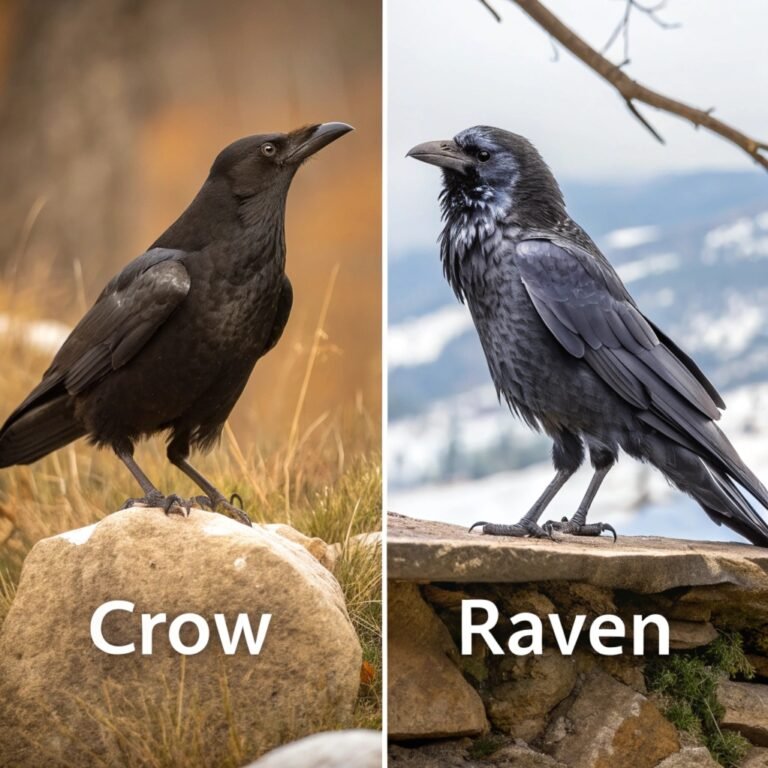12 Pelican Symbolisms: Hidden Meanings and Spiritual Significance Behind These Majestic Sea Birds
The pelican, with its distinctive appearance and intriguing behaviors, has captured human imagination for centuries.
These remarkable birds hold a wealth of symbolic meanings across various cultures, religions, and spiritual traditions.
In this comprehensive exploration, we’ll delve into the hidden symbolisms associated with pelicans, uncovering the profound messages they convey and the lessons they offer to those who seek their wisdom.

Key Takeaways
- Self-sacrifice and Nurturing: Pelicans symbolize selfless love and nurturing, often depicted feeding their young with their own blood.
- Abundance and Prosperity: These birds represent the fulfillment of basic needs and the promise of plenty.
- Teamwork and Cooperation: Pelicans’ group fishing behavior symbolizes the power of working together.
- Renewal and Purification: Their connection to water embodies themes of cleansing and rebirth.
- Grace and Harmony: The pelican’s graceful movements in flight represent living life with poise and balance.
- Protection and Guidance: In various traditions, pelicans are seen as protective spirits and guides.
- Courage and Resilience: Their daring fishing techniques symbolize bravery and the ability to bounce back.
- Spiritual Nourishment: In Christian symbolism, pelicans represent Christ’s sacrifice and spiritual sustenance.
- Adaptability and Survival: Pelicans’ ability to thrive in various environments symbolizes adaptability.
- Balance of Material and Spiritual: They represent the harmony between earthly needs and spiritual aspirations.
- Intuition and Emotional Depth: Pelicans’ connection to water symbolizes emotional intelligence and intuition.
- Transformation and Rebirth: Their diving and resurfacing represent personal growth and transformation.
1. Symbol of Self-Sacrifice and Nurturing
The pelican’s most profound symbolism lies in its legendary act of self-sacrifice. Ancient tales describe the mother pelican piercing her own breast to feed her young with her blood during times of scarcity.
This powerful image has become a timeless metaphor for unconditional love, parental devotion, and selfless nurturing. In Christian iconography, this symbolism extends to represent Christ’s sacrifice for humanity, drawing parallels between the pelican’s mythical act and the Eucharist.
The pelican’s large throat pouch, used to catch fish and feed its young, further reinforces this nurturing symbolism. This representation of the pelican reminds us of the importance of caring for others, even at personal cost, and the profound impact of selfless love in our lives and communities.
The image of the pelican feeding its young has been depicted in various forms of art, from medieval manuscripts to modern sculptures, serving as a constant reminder of the power of sacrificial love.
2. Representation of Abundance and Prosperity

Pelicans, with their impressive fishing skills and large bills capable of holding substantial catches, have come to symbolize abundance and prosperity.
These birds are often seen as harbingers of good fortune, particularly for those who make their living from the sea. The pelican’s ability to dive from great heights and emerge with a bountiful catch represents the promise of plenty and the fulfillment of basic needs.
In many coastal cultures, the sight of pelicans is associated with successful fishing expeditions and a bountiful harvest from the sea. This symbolism extends beyond material wealth, suggesting a richness of spirit and an abundance of opportunities.
The pelican teaches us to recognize and appreciate the abundance in our lives, whether it comes in the form of material resources, emotional support, or spiritual fulfillment.
3. Embodiment of Teamwork and Cooperation
One of the most fascinating aspects of pelican behavior is their tendency to fish in groups, demonstrating remarkable coordination and cooperation.
This collective effort, where pelicans work together to herd fish into shallow waters for easier catching, symbolizes the power of teamwork and community.
The sight of pelicans flying in perfect formation or fishing in synchronized groups serves as a powerful reminder of what can be achieved through collaboration.
This symbolism encourages us to value the strength of community bonds and to recognize the importance of working together towards common goals.
In many spiritual and totemic traditions, the pelican spirit animal is invoked to inspire unity, collective progress, and the harmonious functioning of groups or societies.
The pelican’s cooperative behavior teaches us that by working together, we can achieve far more than we could individually.
4. Symbol of Renewal and Purification

The pelican’s close association with water imbues it with symbolism related to renewal, cleansing, and purification.
As sea birds that spend much of their lives near or on water, pelicans embody the transformative and purifying qualities of this element.
In many spiritual traditions, water is seen as a source of life and a medium for spiritual and emotional cleansing.
The pelican’s ability to dive into water and emerge refreshed and nourished symbolizes the process of personal renewal and the washing away of negative energies.
This symbolism encourages us to embrace opportunities for personal cleansing and renewal, whether through literal immersion in water or metaphorical cleansing of the mind and spirit.
The pelican reminds us of the importance of regularly purifying our thoughts, emotions, and actions to maintain spiritual and emotional well-being.
5. Representation of Grace and Harmony

Despite their large size, pelicans exhibit remarkable grace in flight and on water. Their ability to glide effortlessly through the air and perform synchronized movements as a group symbolizes living life with poise, balance, and harmony.
The pelican’s graceful flight, often in perfect formation with others of its kind, represents the ideal of moving through life’s challenges with elegance and composure.
This symbolism encourages us to approach our own lives with a sense of grace, maintaining inner calm and outward harmony even in the face of difficulties.
The pelican’s ability to transition smoothly between air and water also symbolizes adaptability and the capacity to navigate different aspects of life with equal skill and grace.
This representation of the pelican inspires us to cultivate a balanced and harmonious approach to life’s various domains.
6. Symbol of Protection and Guidance
In various cultural and spiritual traditions, pelicans are seen as protective spirits and guides. Their vigilant nature and protective behavior towards their young have led to associations with guardianship and spiritual guidance.
In some Native American traditions, the pelican is considered a spirit animal that offers protection and guidance, particularly in matters related to emotional well-being and family life.
The pelican’s ability to navigate vast stretches of water has also led to its symbolism as a guide for safe travels, especially for those journeying across seas or embarking on spiritual quests.
This protective symbolism extends to the idea of the pelican as a guardian of hidden wisdom, capable of diving deep into the unconscious to retrieve valuable insights.
As a symbol of protection and guidance, the pelican reminds us to trust in our inner wisdom and to seek guidance from higher sources when navigating life’s challenges.
7. Embodiment of Courage and Resilience
The pelican’s fishing technique, which involves diving from great heights into the water at high speeds, symbolizes courage, daring, and resilience.
This seemingly reckless behavior, combined with the bird’s ability to emerge unscathed and successful, represents the courage to take risks and the resilience to bounce back from challenges.
The pelican’s unique physical adaptations that allow it to survive these dives – such as air sacs under the skin and a flexible esophagus – further reinforce the symbolism of adaptability and survival skills.
This aspect of pelican symbolism encourages us to approach life’s challenges with bravery, to take calculated risks in pursuit of our goals, and to trust in our ability to recover from setbacks.
The pelican teaches us that with proper preparation and trust in our abilities, we can face daunting situations and emerge stronger. This symbolism is particularly relevant in times of personal or professional adversity, reminding us of our innate resilience and capacity for growth through challenges.
8. Representation of Spiritual Nourishment

In Christian symbolism, the pelican holds a special place as a representation of spiritual nourishment and divine love.
The image of the pelican feeding its young with its own blood has been interpreted as an allegory for Christ’s sacrifice and the nourishment provided by the Eucharist.
This powerful symbolism extends beyond Christianity, representing the broader concept of spiritual sustenance and the nurturing of one’s inner self.
The pelican’s ability to carry large amounts of food in its bill pouch symbolizes the abundance of spiritual nourishment available to those who seek it.
This aspect of pelican symbolism reminds us of the importance of tending to our spiritual needs and the transformative power of divine love and grace. It encourages us to seek sources of spiritual nourishment in our lives and to share that nourishment with others, fostering a community of spiritual growth and support.
9. Symbol of Adaptability and Survival
Pelicans are remarkably adaptable birds, capable of thriving in various environments from coastal areas to inland lakes. This adaptability symbolizes the importance of flexibility and resourcefulness in navigating life’s changing circumstances.
The pelican’s ability to adjust its fishing techniques based on available prey and environmental conditions represents the value of adapting our approaches to meet new challenges.
Furthermore, the pelican’s long evolutionary history and successful survival through changing climates and environments symbolize resilience and the ability to withstand the test of time.
This symbolism encourages us to cultivate adaptability in our own lives, to be open to change, and to develop the skills necessary to thrive in diverse situations.
The pelican teaches us that survival often depends on our ability to adjust our strategies and behaviors in response to new circumstances, a lesson that is particularly relevant in our rapidly changing world.
10. Representation of Balance Between Material and Spiritual
The pelican’s life, split between sky, water, and land, symbolizes the balance between material and spiritual realms.
Their ability to soar high in the air represents spiritual aspirations and higher thoughts, while their connection to water symbolizes emotional depth and intuition.
Their time on land represents grounding in the material world. This multi-faceted existence of the pelican serves as a metaphor for the human experience of balancing earthly needs with spiritual growth.
The pelican’s fishing behavior – diving from the air into the water to catch fish – can be seen as a symbolic bridging of the spiritual (air) and emotional (water) to meet physical needs (food).
This symbolism encourages us to strive for balance in our lives, attending to our material needs while not neglecting our spiritual and emotional well-being.
The pelican reminds us that true fulfillment comes from harmonizing all aspects of our existence, a lesson that is particularly relevant in our often hectic and materially-focused world.
11. Symbol of Intuition and Emotional Depth
The pelican’s close association with water imbues it with symbolism related to intuition and emotional intelligence. Water, in many spiritual and psychological traditions, represents the realm of emotions, the unconscious mind, and intuitive knowledge.
The pelican’s ability to navigate and fish in water symbolizes the capacity to dive deep into one’s emotions and retrieve valuable insights.
Their large eyes and keen vision, which allow them to spot fish from great heights, represent the ability to see beyond the surface and perceive hidden truths.
This symbolism encourages us to trust our intuition, to explore our emotional depths, and to value the wisdom that can be gained from our feelings and unconscious mind.
The pelican teaches us the importance of emotional intelligence and the power of intuitive understanding in navigating life’s complexities.
12. Representation of Transformation and Rebirth
The pelican’s diving and resurfacing behavior symbolizes the process of personal transformation and rebirth.
Each dive represents a journey into the unknown, a willingness to leave the familiar (air) and plunge into the mysterious depths (water). The emergence with sustenance symbolizes the rewards of this transformative journey.
In some spiritual traditions, this cycle of diving and resurfacing is seen as a metaphor for the soul’s journey – descending into the material world and ascending back to the spiritual realm, each time gaining new experiences and wisdom.
The pelican’s molting process, where it sheds old feathers for new ones, further reinforces this symbolism of renewal and rebirth.
This aspect of pelican symbolism encourages us to embrace change, to be willing to dive deep into our psyche for personal growth, and to trust in the process of transformation.
The pelican reminds us that every ending is also a new beginning, and that growth often requires us to leave our comfort zones.
FAQs
What does it mean if a pelican appears in your dream?
A pelican appearing in your dream often symbolizes selflessness, nurturing, and abundance. It may indicate a need to care for others or yourself, or it could represent upcoming prosperity. The context of the dream and your personal associations with pelicans are important for interpretation.
If the pelican is feeding its young in the dream, it might suggest a need to nurture your own projects or relationships. A flying pelican could symbolize freedom or a desire to rise above current challenges.
Are pelicans considered lucky?
In many cultures, pelicans are indeed considered lucky symbols, particularly for fishermen and those living near the coast. Their association with abundance and successful fishing makes them harbingers of good fortune in maritime traditions.
The pelican’s ability to carry large amounts of fish in its pouch has led to its association with prosperity and plenty. However, the concept of luck can vary across cultures, so the pelican’s lucky status is not universal.
What is the spiritual meaning of a pelican?
The spiritual meaning of a pelican often relates to self-sacrifice, renewal, and spiritual nourishment. In Christian symbolism, it represents Christ’s sacrifice. More broadly, it symbolizes the nurturing aspect of the divine and the soul’s journey towards enlightenment.
The pelican’s diving and resurfacing can represent the cycle of spiritual death and rebirth, while its feeding behavior symbolizes the nourishment of the soul. In many spiritual traditions, the pelican is seen as a guide for those on a spiritual journey, offering wisdom and protection.
How is the pelican used in heraldry?
In heraldry, the pelican is often depicted as the “pelican in her piety” – a mother pelican feeding her young with her own blood. This symbol represents self-sacrifice, charity, and devotion to family or subjects in coats of arms and crests.
The image is typically shown with the pelican standing over its nest, wings extended, with drops of blood falling from its breast to feed its chicks. This heraldic symbol was particularly popular in medieval and Renaissance Europe, where it was used by both religious and secular institutions to represent virtues of selflessness and care for others.
What does it mean to have a pelican as a spirit animal?
Having a pelican as a spirit animal suggests you possess qualities of selflessness, adaptability, and intuition. It may indicate a calling to nurture others, a need for emotional cleansing, or an ability to dive deep into your subconscious for wisdom and insights.
Those with the pelican as a spirit animal might find themselves naturally drawn to caregiving roles or professions that involve nurturing others. The pelican spirit animal also encourages a balance between self-care and caring for others, reminding us that we must nourish ourselves to be able to nourish others effectively.
Are there any negative symbolisms associated with pelicans?
While pelicans are generally viewed positively, in some contexts they can symbolize gluttony or excessive consumption, due to their large bills and appetite. However, this interpretation is less common than their positive associations. In some cultures, the pelican’s habit of storing fish in its pouch has been associated with hoarding or greed.
Additionally, the myth of the pelican feeding its young with its own blood, while usually seen as a positive symbol of sacrifice, has sometimes been interpreted as a representation of self-harm or martyrdom taken to an extreme. It’s important to note that these negative interpretations are far less prevalent than the positive symbolisms associated with pelicans.

Hello, I’m Emily Price, the founder of Birds Affection. As a passionate bird enthusiast and spiritual seeker, I’ve always been fascinated by the symbolic meanings and mystical connections between birds and our lives. On this website, I share my knowledge and insights on the spiritual significance of various bird species, exploring their roles as messengers, guides, and teachers. Through my writing, I aim to inspire and educate others on the profound wisdom and beauty that birds bring to our world. Join me on this journey as we delve into the enchanting realm of bird symbolism and discover the hidden meanings behind these magnificent creatures.







